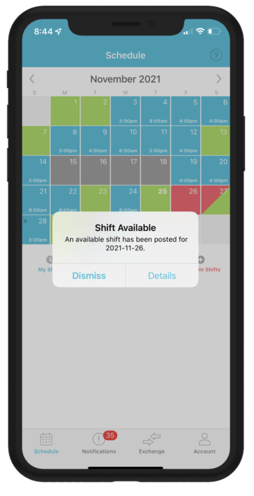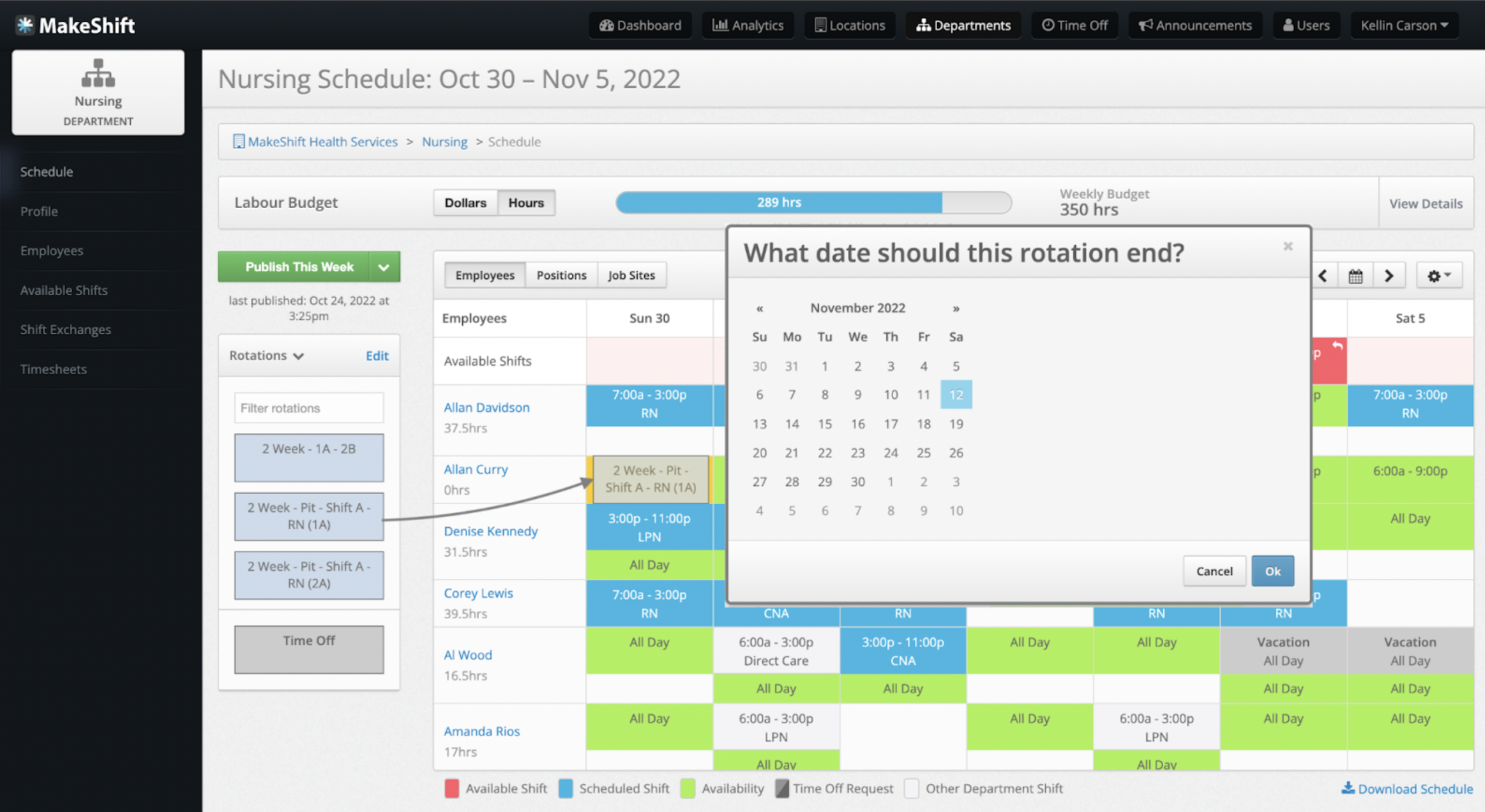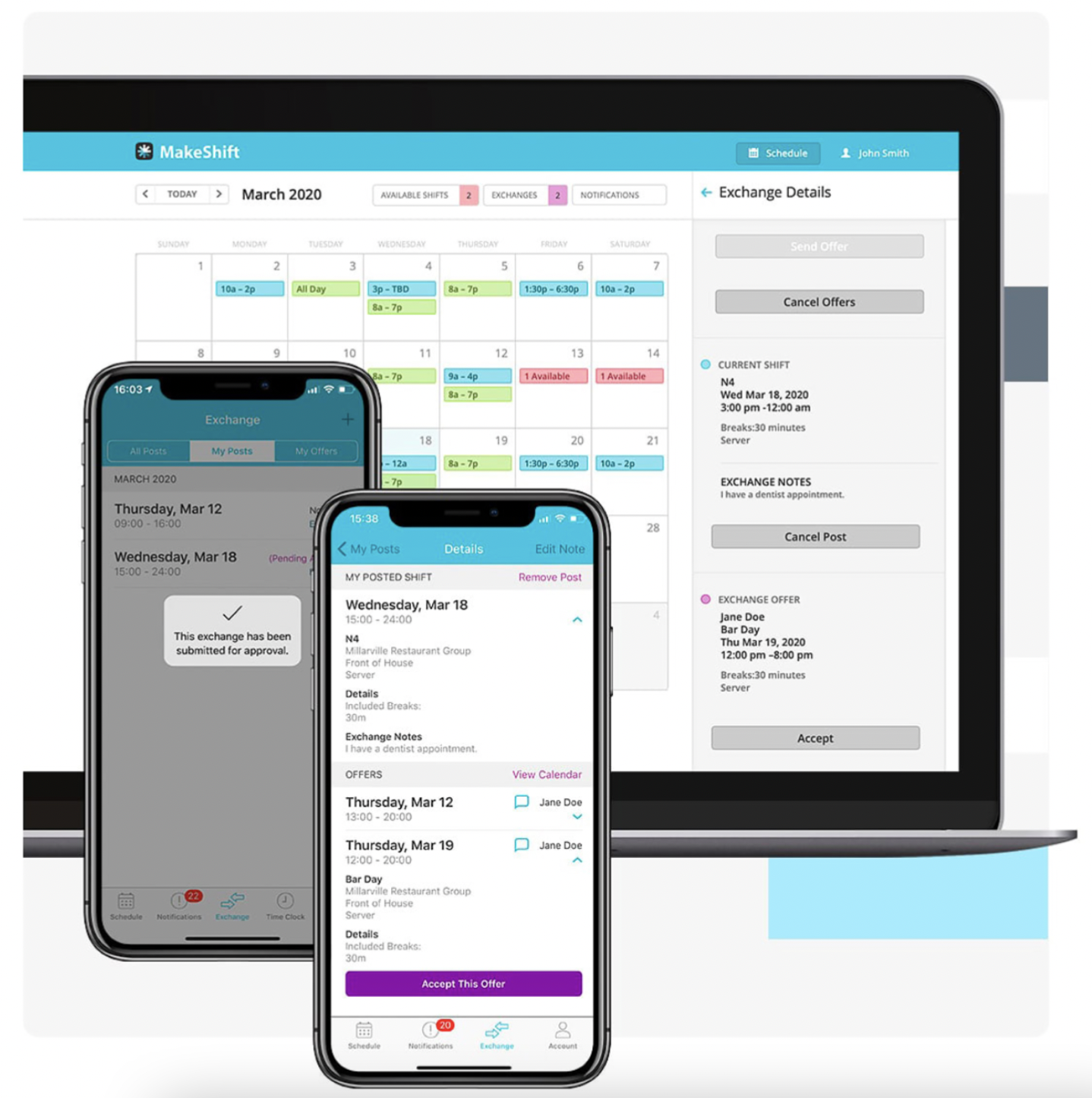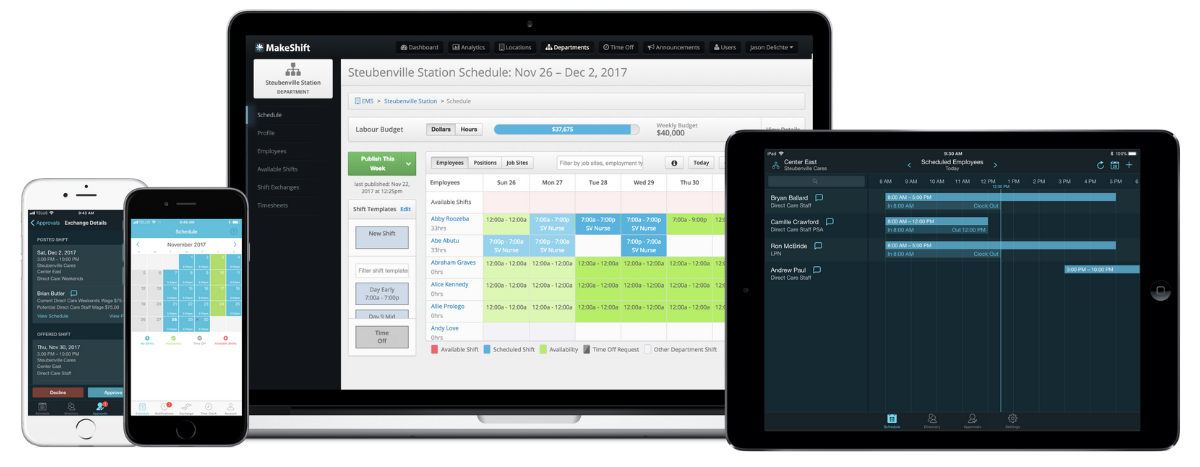“Nurses are a unique kind. They have this insatiable need to care for others, which is both their greatest strength and fatal flaw.” — Jean Watson, American nurse theorist and nursing professor
We know nurses.
We understand their struggles.
MakeShift’s very own story begins with our founder’s wife, a nurse, and her frustraton with the scheduling process.
She felt undervalued, overworked, and exhausted.
As any nurse knows, nursing is a rewarding field to work in but when you’ve worked numerous hours of mandatory overtime, sheer exhaustion creeps in and it’s hard to shake.
And while avoiding mandatory overtime is best for your nurses’ well-being, sometimes it just can’t be helped.
In those situations, managing overtime is your best option. Let’s get real about mandatory overtime for nurses by covering:
- The Reality Of Mandatory Overtime For Nurses
- When You Can’t Avoid Mandatory Overtime, Balance Is Critical
- How To Manage Mandatory Overtime For Your Nurses
- MakeShift Helps You Manage Nursing Overtime
- Think “People-First” When Managing Mandated Overtime
The Reality Of Mandatory Overtime For Nurses
Long shifts and mandatory overtime go hand in hand with the healthcare industry — particularly for nurses.

According to Elite Learning’s Nursing Salary Guide, overtime hours can be a welcome salary boost or a dreaded energy drain for nurses. But whether nurses love it or hate it, roughly half will work more weekly hours than they sign up for.
Nursing overtime falls into 2 categories:
Voluntary overtime — Paid overtime a nurse willing accepts or seeks to pad the paycheck or gain more on-the-job experience.
Mandatory overtime — The hours nurses are required to work beyond their contracted shifts. Mandatory overtime usually kicks in after a nurse works 36 to 40 hours in a week. This type of overtime can be just an extra hour while a nurse waits for a shift replacement to make it to work or it can add up to an additional shift or two — the result of chronic nursing shortages.
The Problems From Mandatory Overtime for Nurses
Obviously, no one enjoys being forced to work when they don’t want to or hadn’t planned on it. It upsets the work-life balance we’re all working towards.
That being said, mandatory overtime also creates more serious problems.
1. Workplace morale decreases and the probability of nursing burnout increases.
2. A nurse’s safety, physical health, and well-being may also be put at risk.
3. Higher probability of mistakes and lower quality patient care.
4. Too much mandatory overtime can result low nursing staff retention.
Mandatory overtime is a short-term fix for the long-term problem of short staffing, which may get even worse:
- According to a survey from the National Council of State Boards of Nursing, the average age of a registered nurse in the U.S. in 2020 was 51 years old, which means they’ll be retiring in near(ish) future.
- The U.S. Bureau of Labor Statistics predicts that more than 275,000 additional nurses will be needed from now until 2030.

When You Can’t Avoid Mandatory Overtime, Balance Is Critical
Ideally, excessive overtime should be avoided. However, especially in the healthcare industry, it’s often necessary. So, balance is the key to making overtime work for both your nursing staff and your healthcare facility.
The American Journal of Nursing (AJN) cites the potential health risks for both patients and nurses that can occur from excessive overtime. With the priority of reducing these risks, mandatory overtime should only be implemented temporarily and during the most urgent situations.
Rather than chalking the issue of mandated overtime up to “just the way it is,” let’s brainstorm on ways to manage it.
How To Manage Mandatory Overtime For Your Nurses
When you can’t prevent overtime, focus on managing it. Your nursing staff and your patients will appreciate your efforts.
1. Improve Workplace Conditions
A study in the International Journal of Nursing Studies found that a higher-quality workplace culture corresponds with higher nursing job satisfaction and retention.
Overtime can take its toll — be proactive in improving your workplace to help ease the toll while your nurses are on duty.
- Increase recognition of your nurses overall and individual nurses doing an exceptional job.
- Encourage communication between your nursing staff and managers — get the dialog going about mandatory overtime. How do they feel about it? Welcome their opinions.
Other creative ideas:
- Stock the breakroom with protein-packed, high-energy drinks & snacks
- Give monthly “thank you” gifts to nurses who regularly work overtime. (Ex: Handwritten thank you note & a gift card)
2. Bring In Travel Nurses
Bringing in travel nurses to fulfill short-term contracts can help shoulder the load of filling schedules.

The demand for travel nursing grew by at least 35% in 2020 and there are over 1,696,386 traveling nurses currently employed in the United States.
Hiring travel nurses can provide some much-needed relief to your nursing staff who have been steadily working overtime.
3. Strategic Schedule Planning
Strategic schedule planning accounts for staff availability and patient numbers. Creating a nurse scheduling system should be the first step in your schedule planning.
A good scheduling system should:
- Be made well in advance
- Be easy to read
- Be easy to share
- Attempt to avoid scheduling overtime shifts
- Offer flexibility to nurses
Scheduling software can make this process less time-consuming and more interactive for the entire staff.
MakeShift Helps You Manage Nursing Overtime
We understand the scheduling struggles for nurses and the overall healthcare industry.
MakeShift helps you reduce and manage overtime for your nursing staff. We designed our software to streamline nurse scheduling and ease the burden on managers and employees.
We’ve created features designed to reduce absenteeism, improve communication, and get a handle on unnecessary overtime.
Broadcast available shifts — Whether it's an emergency situation or you're just short-staffed, broadcasting an available shift that your staff can pick up can be a lifesaver.

Rotation-Based Scheduling — Build out your rotation templates and schedule your staff on any length of rotation.

Employee Shift Exchanges — Allow staff to exchange shifts with one another, reducing the need to constantly update schedules manually. If they’re going to have mandatory overtime, give them the option to work it based around their life.

Think “People-First” When Managing Mandated Overtime
At MakeShift, we’re people-centric, which fuels our decisions and innovative ideas.
Take the same approach at your healthcare facility when addressing mandatory overtime for your nurses.
Let them know you appreciate them and their lives — and that you don’t take lightly the effect mandated overtime has on them.
Being proactive in streamlining your scheduling process can have a positive impact on your operation and help in managing overtime.
Book a demo with one of our scheduling experts today to see how MakeShift can revolutionize your staff scheduling.








